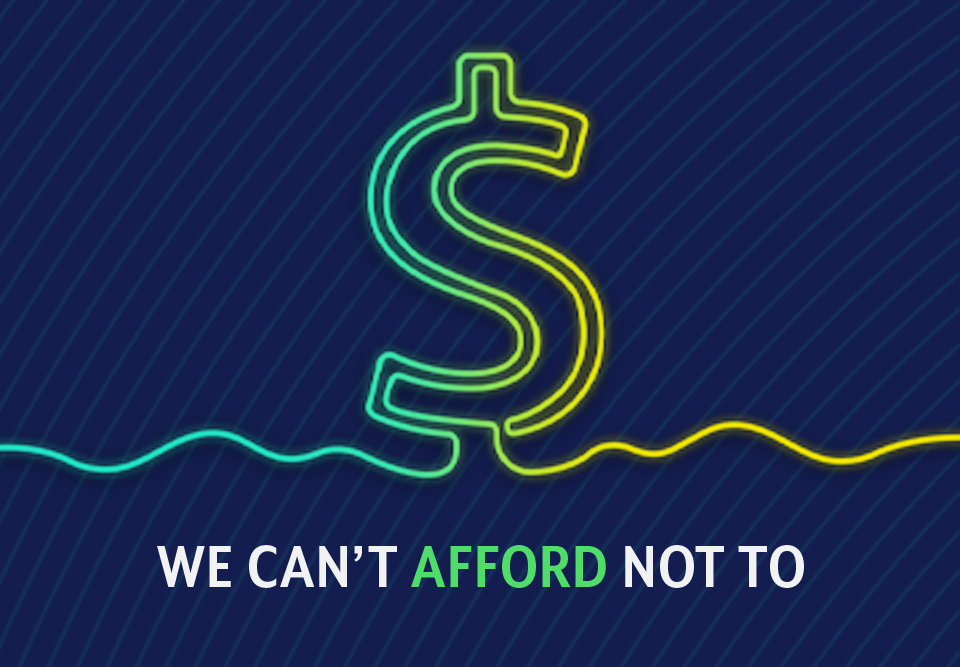Why we can’t afford not to fund mental health care

The cost to society is just too great.
Poor mental health costs Canada at least $50 billion per year in direct health care costs, lost productivity and decreased quality of life. Substance use costs the Canadian economy an additional $46 billion a year in direct healthcare costs, lost productivity and criminal justice costs.
We can’t afford to pay out of pocket.
In Canada, our free public healthcare system excludes most mental and substance use healthcare services, so millions of Canadians rely on employee benefits – or they pay out of pocket. Canadians pay at least $1 billion per year on private psychological services alone. What happens if we can’t afford to pay? We don’t get the care we need.
Publicly insured services would boost the economy.
When everyone, everywhere in Canada has universal mental healthcare, the economy will profit.
Every dollar spent on mental health returns $4 to $10 to the economy.4 So, new investment in mental health and substance use health is not new money “out.” It is money saved, and it is money injected back into the economy.
- Improving access to treatments for depression could boost the economy by $32.3 billion a year. Anxiety treatments could add $17.3 billion a year. Publicly insured counselling and therapy programs in the UK and Australia return $2 for every dollar invested.
- When we do public education and promote good mental health, we prevent mental illness and improve people’s health. But we also save public money in reduced healthcare costs. One program in Ontario that promoted mental health for young children returned $2.50 per family for every $1 of government investment. It also improved how children did at school and reduced emotional and behavioural problems.
- When it comes to substance use, programs also have high returns, while reducing harm, violence and crime. One program in Australia returned approximately $3 for each $1 invested. When you consider reduced police and paramedic interventions, and other health-related costs, it’s more like $9 for every $1.


